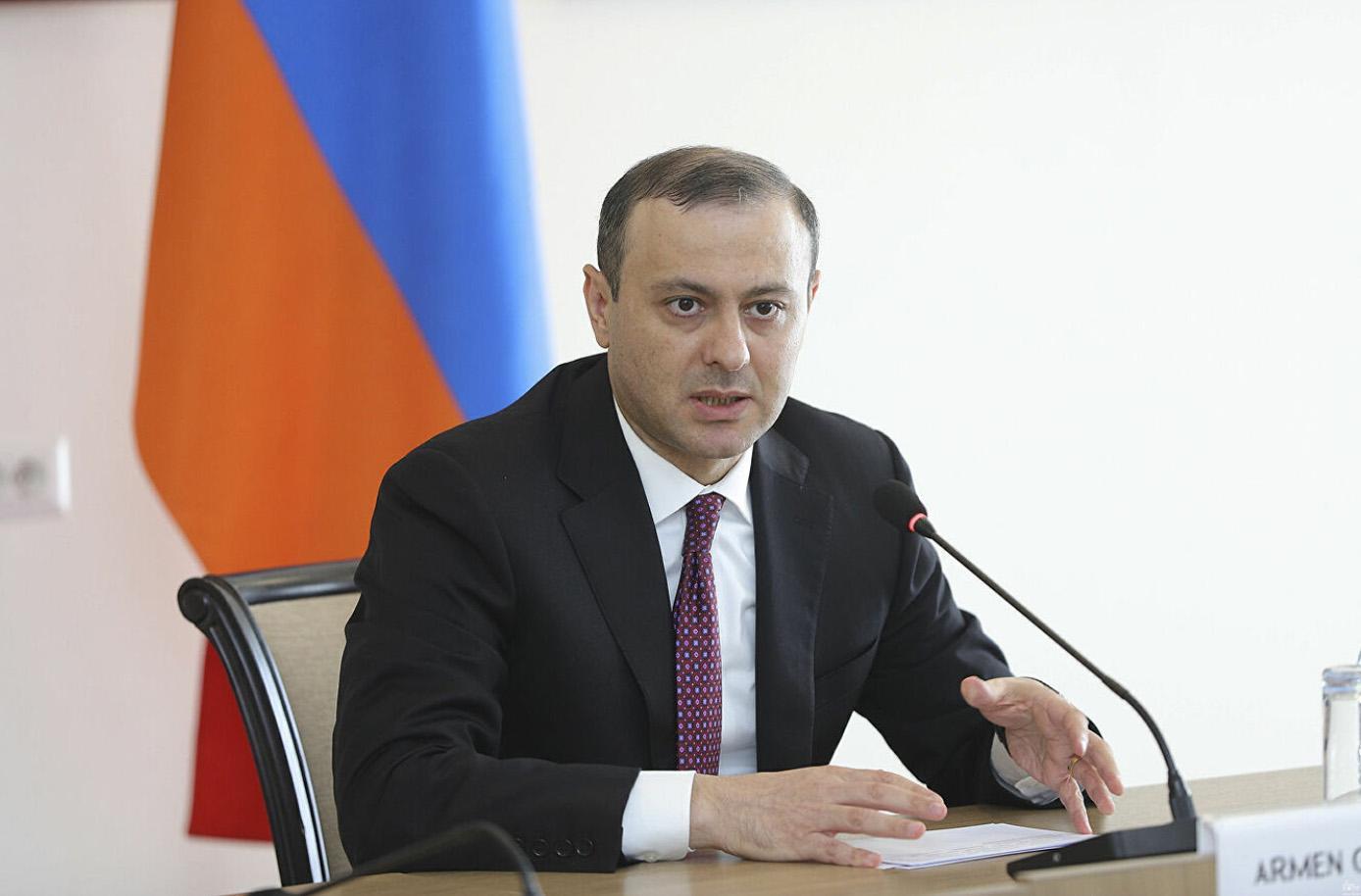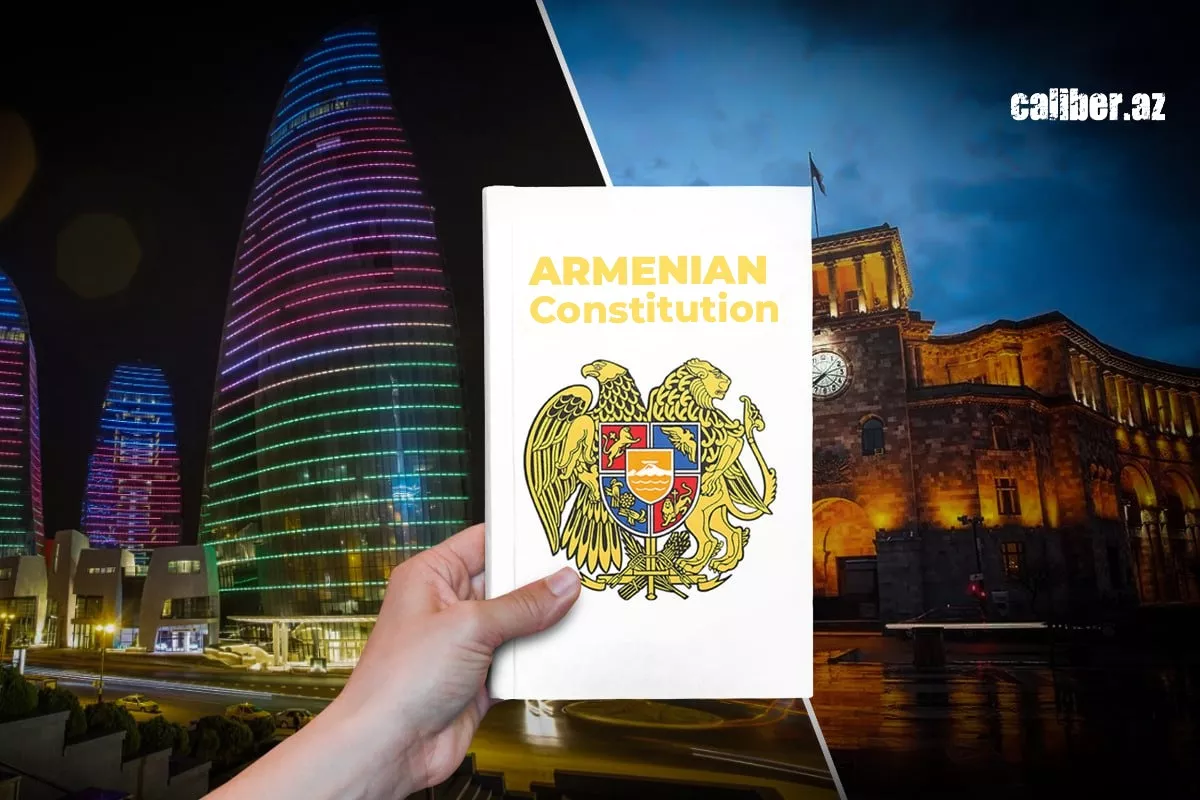Armenian barren flower Yerevan’s speculations around the peace treaty
The Armenian government continues to deliberately speculate around the peace treaty with Azerbaijan in order to avoid fulfilling the key requirements of Baku’s peace agenda. In particular, members of Prime Minister Nikol Pashinyan’s team periodically declare their readiness to sign a peace agreement with Azerbaijan and even dissolve the OSCE Minsk Group—but with their own caveats. This idea was voiced by the Armenian Prime Minister himself during his speech in the Armenian Parliament in April of this year: “We propose signing a peace agreement and simultaneously dissolving the OSCE Minsk Group. That is, both documents would be signed on the same day.”
A similar statement was made recently by the Secretary of Armenia’s Security Council, Armen Grigoryan. Responding to journalists’ questions, he said: “Armenia is ready to sign a declaration on the dissolution of the OSCE Minsk Group on the day the peace agreement is signed,” adding that the text of the peace agreement has been fully agreed upon.
However, Grigoryan failed to clarify Yerevan’s constitutional dilemma, which remains the main obstacle to signing the peace agreement. “As for the Constitution—you already know Armenia’s position on this issue,” he said vaguely, avoiding any details on this delicate topic for Yerevan.

Once again, it becomes abundantly clear that the Armenian side, through vague and evasive statements, is attempting to postpone the resolution of the constitutional issue indefinitely—apparently hoping that, in time, it may be able to exclude it altogether from the framework of the peace agreement.
It seems the Armenian authorities still fail to grasp that such an approach is undoubtedly a losing strategy for Yerevan, given Baku’s unwavering position on matters of fundamental importance to Azerbaijan.
The Armenian government’s adventurism is also evident in its persistent efforts to impose on the international community an image of Armenia as a "peaceful nation" and a "victim"—supposedly due to "Azerbaijan’s aggressive policies." This narrative is reinforced by Yerevan’s repeated declarations of Armenia’s alleged commitment to peace, coupled with outright false accusations against Azerbaijan regarding so-called "ethnic cleansing in Karabakh" and alleged "plans to extend the conflict onto Armenian territory."
It is no coincidence that, in his April speech before parliament, Nikol Pashinyan stated the following: “The OSCE Minsk Group de facto has a broader context, and we want to ensure that Azerbaijan does not interpret this step as closing the conflict on its own territory and shifting it onto Armenia.”
Such statements by the Armenian Prime Minister are as far from the truth as Earth is from Alpha Centauri. In essence, they are nothing more than pure populism and yet another attempt to portray Azerbaijan as the “aggressor” in the eyes of the international community.
This comes despite repeated statements from official Baku that Azerbaijan has no territorial claims against Armenia and expects the same in return. As far back as October 2020, President Ilham Aliyev declared: “We act within the law. We make no claims to the lands of other countries, but we will not give up an inch of our own.” This remains Baku’s consistent position to this day: Armenia must renounce the territorial claims against Azerbaijan that are enshrined in its constitution.

Thus, the picture becomes clear: Baku’s position is entirely consistent and logical—unlike that of the “eternally long-suffering” Armenian side, whose stance is incoherent and utterly lacking in any semblance of consistency. For further illustration, consider the following: last week, Armen Grigoryan declared that Armenia had made progress in advancing its peace agenda. “We have never misled anyone in promoting our peace agenda. Armenia has made progress in the logic of building peace,” said the Secretary of Armenia’s Security Council. And yet, in the same breath, he told Armenian journalists: “There has been no progress in signing a peace agreement between Armenia and Azerbaijan.”
We believe no further comment is needed—the inconsistency speaks for itself. These contradictions likely stem from Armenia’s complete lack of a strategic vision for building long-term relations with its neighbours—Azerbaijan and Türkiye.
What can Yerevan possibly counter Baku with when it comes to the dissolution of the OSCE Minsk Group or amending its constitution? The answer is clear—nothing.
It is also worth noting that by undermining Baku’s peace agenda, Yerevan is simultaneously shelving the normalisation of relations with Ankara—a fact that has not gone unnoticed by the Turkish side. A clear indication of this came in recent messages from President Erdoğan directed at the Armenian leadership. “Türkiye is closely monitoring the process surrounding the signing of a peace agreement between Azerbaijan and Armenia,” said the Turkish leader, reminding the Armenian government of the formula for establishing peace with Ankara.
When analysing the broader picture, one conclusion becomes evident: the Armenian authorities have stirred up this entire mess of contradictions and ambiguities merely to conceal their true objective—the preparation for a new war in the region. This scenario appears increasingly plausible against the backdrop of Armenia’s active militarisation, facilitated by India and France, who have vested interests in fuelling new hotspots of tension in the South Caucasus. This includes stoking revanchist sentiments in Armenian society through symbolic gestures such as opening so-called “parks of life,” and so on and so forth.
It seems the Armenian leadership has yet to learn the lessons of the Second Karabakh War—a conflict that arose precisely because the Armenian authorities refused to resolve the long-standing dispute through peaceful means. Today, the country is once again “stepping on the same rake,” wilfully ignoring the obvious with astounding short-sightedness: Azerbaijan’s “Iron Fist” has grown even stronger, and no patrons—be they from the North, West, or Asia—will be able to shield Armenia from its devastating force. They failed to do so in 2020—and they will fail again now.








